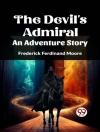Nat Gould’s novel ‘The Second String’ is a classic tale set in the world of horse racing and follows the journey of an underdog jockey striving for success. The book is characterized by its vivid descriptions of racetracks, the intensity of competition, and the complex relationships between trainers, jockeys, and horse owners. With a captivating narrative style, Gould transports readers into the heart of the racing world, making them feel the exhilaration and pressure of the sport. ‘The Second String’ stands out as a poignant exploration of ambition, resilience, and the pursuit of dreams in the face of adversity. Discover the thrill of the racetrack and the human spirit through Gould’s masterful storytelling. Nat Gould, a former jockey himself, brings his firsthand experience and passion for horse racing to life in ‘The Second String’, offering readers a realistic and engaging portrayal of the sport. Recommended for fans of classic literature, sports fiction, or anyone seeking a compelling story of perseverance and triumph.
Yazar hakkında
Nat Gould was a notable English sports writer and author, primarily recognized for his contribution to the horse racing genre in literature. Born on November 21, 1857, in Manchester, England, Nathaniel Gould carved out a niche in the sports fiction arena. With over 130 novels to his credit, Gould established himself as one of the most prolific writers of his time, specializing in tales that capture the thrill and pageantry of the turf. ‘The Second String’ is one of his many works that hold testament to his ability to weave captivating stories around the world of horse racing [Addyman Books, 2014]. Gould’s literary style is characterized by fast-paced narratives, keen observations of equestrian life, and an innate understanding of the human condition as seen through the lens of sport. Although his work primarily catered to the popular market of his day, Gould’s novels still resonate with enthusiasts for their historical portrayal of racing culture and vibrant storytelling. Gould continued to write into his later years, with his final novel being published posthumously. He passed away on July 25, 1919, in London, yet his legacy lives on through the lively and engaging stories that brought the excitement of horse racing to the masses [Hawkes, 1984].












